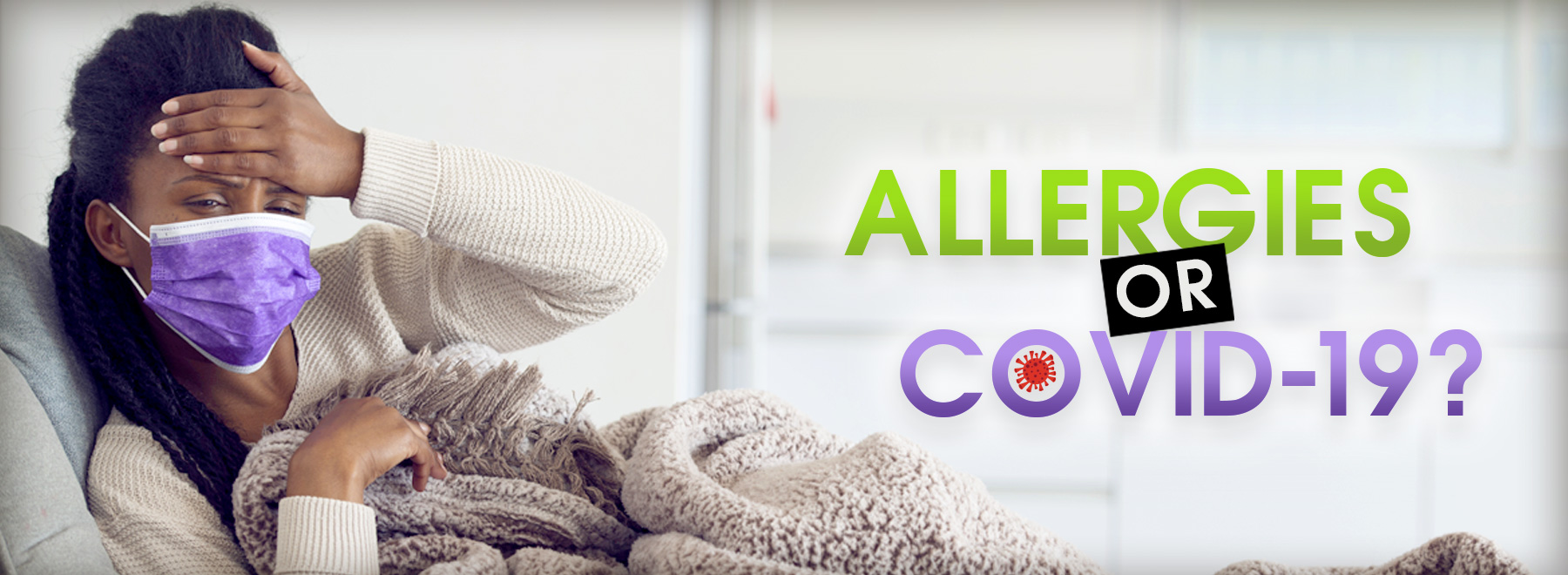Are those sniffles and sneezes allergies or something worse?
COVID-19 isn’t going away any time soon – and seasonal allergies that roar back in the spring are causing many to sneeze and to keep a box of tissues handy.
How do you tell the difference between allergies and the novel coronavirus when they share some of the same symptoms?
Experts advise allergy sufferers – a significant portion of the population at about one of every six people – to educate themselves on the differences between allergy and virus symptoms and which symptoms overlap. They say to consult a health care practitioner if the allergy sufferers are unsure of the root of their symptoms.
An important first point: Do you have a history of suffering from spring allergies and the sniffles, cough and nasal woes that come with them?

If the answer is no and you’re experiencing nasal symptoms such as cough, sneezing and sore throat, “out of an abundance of caution, you should think about getting tested for COVID,” said Dr. Gailen Marshall, R. Faser Triplett Chair of Allergy and Immunology and executive director of the Mississippi Clinical Research and Trials Center at the University of Mississippi Medical Center.
Allergies are caused by your immune system reacting to normal things found in your environment, such as pollen, dust or pet dander. Allergies typically cause nasal or eye symptoms and aren’t contagious, and patients often can find long-term relief through medications.
Those who have the COVID-19 infection can also display symptoms similar to allergies, such as cough, runny nose or congestion, wheezing, sore throat, headache, or sneezing. But there are a number of COVID-19 symptoms that are not also allergy symptoms, such as chills and fever, body aches, and total loss of taste and smell.
“Allergies, even the so-called hay ‘fever,’ in fact do not cause fever,” Marshall said. “That’s a misnomer. If you have a fever, you should not think of it as an allergy.
“That raises the question of getting COVID-tested.”
Allergies can cause itching and watery eyes, but those are not common symptoms of viral illnesses.
“Ask yourself if your symptoms of sneezing and eyes itching happen when you go outside,” Marshall said. “Do you get better after you swallow an antihistamine?
“Typically, COVID does not respond to antihistamines, and certainly not to the degree an allergy would.”
Those coping with allergies could experience a measure of loss of smell and possible diminished taste, Marshall said, but a complete loss of both smell and taste is a COVID-19 symptom.
“If you lose them both, it’s a signal that it could be COVID,” he said.
And if you’ve been in contact with someone who has tested positive for COVID-19 and have symptoms, “it’s logical to assume you could be COVID positive, too,” he said.
As spring progresses, Marshall said he expects to see patients in his Medical Center clinic who are unsure if their symptoms point to seasonal allergies or COVID-19.
“We make sure that everyone wears a mask and we check their temperature before coming into the clinic,” he said. “We ask all of the contact tracing questions.
“Even if they have only a mild fever, we make sure they get tested before they come into the clinic.”
The Centers for Disease Control and Prevention has produced a coronavirus “self-checker” tool, revised Feb. 24, that helps people make decisions on medical care or getting tested for COVID-19 if they are experiencing symptoms of allergies, colds and flu, or COVID-19, especially those that may overlap from one condition to another.
The above article appears in CONSULT, UMMC’s monthly e-newsletter sharing news about cutting-edge clinical and health science education advances and innovative biomedical research at the Medical Center and giving you tips and suggestions on how you and the people you love can live a healthier life. Click here and enter your email address to receive CONSULT free of charge. You may cancel at any time.



